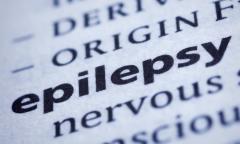Medical appointments can be very important, but time is often limited, so it is useful to prepare beforehand. An epilepsy appointment or review is an opportunity to discuss your epilepsy and seizures, how they affect your life, any treatment you are taking, and any questions or concerns you have. Here are some suggestions to help make the most of your appointment or review.
Why should I have a review?
The NICE (the National Institute for Health and Care Excellence) guideline recommends that everyone can ask for a review of their epilepsy. Your situation may have changed or be about to change. Children, and some adults with other health issues, should be offered a review at least yearly.
Topics you may want to discuss
You may have some very specific issues that are personal to you that you want to talk though, but here are some suggestions of general topics you may want to discuss:
Seizures
- Has the frequency and nature of your seizures changed in the last year?
Medication
- Are you having any side effects from your medication, such as dizziness, tiredness, weight change, memory loss, changes in mood, or problems with concentration or making decisions?
- If your seizures are not well controlled, do you want to explore other treatment options?
- Are you worried that you have been given a different version of your usual medication and how this will affect you?
- Do you find it difficult to remember to take your medication? Would you like to discuss reminder services such as alarms or timed text messages?
- If you are seizure-free, would you like to discuss stopping your medication? However, this should only ever be considered in consultation with an epilepsy specialist.
- Are you taking any other medication?
Women and epilepsy
- Do your seizures tend to be worse around the time of your periods, or mid-cycle?
- Are you pregnant, or thinking of starting a family? If so, it is essential that you talk to your neurologist. Or your GP may refer you to an epilepsy specialist.
- The menopause and hormone replacement therapy (HRT) can affect epilepsy. Would you like a chance to review any adjustments to your medication?
- If you are taking the oral contraceptive Pill, you should let your GP or nurse know. The Pill can be less reliable when taken with some epilepsy medicines, or it may affect your anti-seizure medication (ASM).
Lifestyle
- Would you like to talk about potential seizure triggers, such as stress, lack of sleep, alcohol, and recreational drugs?
Driving
- If you have uncontrolled seizures, would you like to check the driving regulations for your situation?
Employment
- Is work an issue for you? Would you like to talk about how to deal with seizures in the workplace or other employment matters?
Safety and risk
- Do you worry about keeping safe? Would you like some safety advice about cooking and bathing, or sport and leisure activities?
- SUDEP (sudden unexpected death in epilepsy) is rare and only happens to a very small number of people with epilepsy (about 1 in 1,000 adults with epilepsy and 1 in 4,500 children). The better your epilepsy is controlled, the less likely it is that this could happen to you. A review is a good place to talk about how you can reduce your risk.
Saying how you feel
How you feel about your epilepsy and how you feel generally is important. Your epilepsy specialist or nurse may focus on your treatment but you can also tell them about how you are feeling, and any specific problems you have, such as anxiety or depression. You may like to talk about ways of coping with these feelings.
If you would like to talk some more about how you are feeling, you can call, use live chat, or email our helpline.
Questions you may want to think about
- How do you feel about your next appointment or review? What would you like to get from it?
- How can your doctor or nurse help you to get the most out of your appointment? For example, they could repeat key information.
- Are there any specific problems you have, such as low mood or anxiety, which can include feeling hopeless, worthless, or tearful, feeling panicky, irritable, or aggressive, or thinking about harming yourself?
- Do you have any other problems you would like to talk about, such as memory, tiredness, concentration, sleep, or appetite? Such issues may be related to your epilepsy, or may be a separate issue that another doctor, such as your GP, could help with.
Telemedicine
Telemedicine – health appointments delivered via telephone, video or online – is now being used in many areas of the UK. The following tips may help you make your virtual appointment as productive as if you were seeing your doctor or epilepsy specialist in their surgery.
Telephone appointment
- If you are using a mobile phone, make sure you are in an area with a good connection and that your battery is fully charged.
- Try to find a private space to talk or reduce any background noise or distractions that might interfere with your call.
- Use the ‘speaker’ function on your phone so that you are hands free and, if you wish, can make notes when you are talking to your doctor.
- While your GP or neurologist may be able to pick up on feelings such as anxiety or depression when you are talking to them face to face, this could be missed during a phone call, so it can be important to be honest and say how you feel.
Video appointment
- Your doctor or GP practice will send you details of which online platform to use.
- If you are using a health portal (a secure website), make sure you have all the log-in details and passwords to hand.
- If you are using a non-health app such as Facetime or Zoom you might like to practise with friends and family.
- Check that you have a good internet connection.
- Click on the link five minutes beforehand to check your camera and audio functions are working. Use the ‘test my equipment’ button, if there is one. Check that you are not on mute, so that your doctor will be able to hear you.
- A private space, which is well lit will help your doctor to see you easily. Make sure your device is angled so that your face fills the screen.
- Reduce background noise, such as from a TV or radio. Headphones may help you to concentrate on what the doctor is saying.
- Make sure the camera/microphone is in the best position for you to see and hear the doctor.
Further information
NICE (National Institute for Health and Care Excellence)
NICE provides guidance on the diagnosis and treatment of epilepsy.
Epilepsy Society is grateful to Dr F J Rugg-Gunn, Consultant Neurologist & Honorary Associate Professor, Clinical Lead, Chalfont Centre for Epilepsy, who reviewed this information.
Information updated: October 2025. Review date: October 2027.
Download this information
For a printed copy contact our Helpline.
Waiting times
Following the pandemic, many people are facing long waits in between health appointments. Our Clinical Director, Dr Fergus Rugg-Gunn provides practical advice for looking after yourself while you wait.
Wellbeing
Having epilepsy can have a huge impact on a person's wellbeing including their mood, sleep and relationships.
Medical services
The Chalfont Centre and our Gowers unit lead the way in the most advanced techniques for the diagnosis and treatment of epilepsy.
New to epilepsy treatment
The decision whether to start taking anti-epileptic drugs (AEDs) can be difficult, and there is a lot to think about. Here we look at the benefits and risks of taking, or not taking, AEDs.
Managing your treatment
Managing your treatment is an important part of managing your epilepsy, and seeing whether your medication is working. This might include having a care plan, including a treatment plan.







